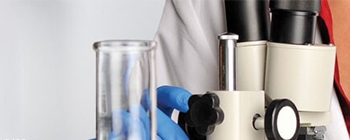Learn More
Invitrogen™ CD30 Human ELISA Kit
For the quantitative detection of human sCD30.
Supplier: Invitrogen™ BMS240
Includes: Aluminum pouch(es) with a Microwell Plate coated with monoclonal antibody to human sCD30
HRP-Conjugate anti-human sCD30 monoclonal antibody
Human sCD30 Standard lyophilized, 200ng/mL upon reconstitution
Control high, lyophilized
Control low, lyophilized
Sample Diluent
Assay Buffer Concentrate 20x (PBS with 1% Tween 20 and 10% BSA)
Wash Buffer Concentrate 20x (PBS with 1% Tween 20)
Substrate Solution (tetramethyl-benzidine)
Stop Solution (1M Phosphoric acid)
Blue-Dye
Green-Dye
Adhesive Films
Description
The Human CD30 ELISA quantitates Hu CD30 in human serum, plasma, buffered solution, or cell culture medium. The assay will exclusively recognize both natural and recombinant Hu CD30. Principle of the method The Human CD30 solid-phase sandwich ELISA (enzyme-linked immunosorbent assay) is designed to measure the amount of the target bound between a matched antibody pair. A target-specific antibody has been pre-coated in the wells of the supplied microplate. Samples, standards, or controls are then added into these wells and bind to the immobilized (capture) antibody. The sandwich is formed by the addition of the second (detector) antibody, a substrate solution is added that reacts with the enzyme-antibody-target complex to produce measurable signal. The intensity of this signal is directly proportional to the concentration of target present in the original specimen. Rigorous validation Each manufactured lot of this ELISA kit is quality tested for criteria such as sensitivity, specificity, precision, and lot-to-lot consistency. See manual for more information on validation.
CD30 (Ki-1, TNF Receptor Superfamily Member 8) is a type I transmembrane glycoprotein of the TNF receptor superfamily. CD30 was originally identified as a cell surface antigen of Hodgkins and Reed-Sternberg cells using monoclonal antibody Ki-1. The ligand for CD30 is CD30L (CD153). The binding of CD30 to CD30L mediates pleiotropic effects including cell proliferation, activation, differentiation, and apoptotic cell death. CD30 has a critical role in the pathophysiology of Hodgkin's disease and other CD30+ lymphomas. CD30 acts as a costimulatory molecule in thymic negative selection. In addition to its expression on Hodgkin's and Reed-Sternberg cells, CD30 is also found in some non-Hodgkin's lymphomas (including Burkitt's lymphomas), virus-infected T and B cells, and on normal T and B cells after activation. In T cells, CD30 expression is present on a subset of T cells that produce Th2-type cytokines and on CD4+/CD8+ thymocytes that co-express CD45RO and the IL4 receptor. Soluble form of CD30 (sCD30) serves as a marker reflecting Th2 immune response. TRAF2 and TRAF5 can interact with this receptor, and mediate the signal transduction that leads to the activation of NF-kappaB. CD30 is a positive regulator of apoptosis, and has been shown to limit the proliferative potential of autoreactive CD8 effector T cells and protect the body against autoimmunity. Two alternatively spliced transcript variants of this gene encoding distinct isoforms have been reported. CD30 is expressed by mononuclear cells in Hodgkin's lymphoma, Reed Sternberg cells and most Anaplastic Large Cell Lymphomas (ALCL). CD30 is also expressed by embryonal carcinomas.Specifications
| P28908 | |
| 0.3 ng/mL | |
| ELISA Kit | |
| Human | |
| Colorimetric Microplate Reader | |
| CD30,D1S166E,Ki-1 | |
| 4.1% | |
| HRP | |
| RUO | |
| 2°C to 8°C | |
| Human | |
| 3 hr. 10 min. |
| 1.6-100 ng/mL | |
| HRP | |
| Plasma, Serum, Supernatant | |
| ELISA | |
| 943 | |
| 5.6% | |
| Pre-coated 96 well plate, Standard, Sample Diluent, Assay Buffer concentrate, HRP-conjugated Detection Antibody, Wash Buffer, Chromogen, Stop Solution, Controls, Adhesive Plate Covers | |
| 96 Tests | |
| Plasma, 25 μL; Serum, 25 μL; Supernatant, 25 μL | |
| Lymphoid activation antigen CD30, Ki-1 antigen | |
| 1 hr. 20 min. |
For Research Use Only



